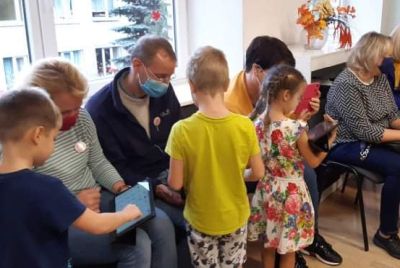- HOME
- COURSE
- Module 1: Introduction to Digital Transformation and Digitalization of Education
- Module 2: Digitalization of Kindergartens and Digital Resources for Kindergartens
- Module 3: Development of Computational Thinking in Kindergartens
- Module 4: Learning Digital Safety and Responsible Use of Internet and Media in Kindergartens
- Module 5: Learning Digital Wellbeing in Kindergartens
- MATERIALS
- ABOUT US

Development of Digital Competence in Pre-School Education
References
Text Resources
12 Computer Science Framework (2016). http://www.k12cs.org
Baker, M. The little book of computational thinking http://www.educationvision.co.uk/evcarticle-computationalthinking6.pdf
Competent Educators of the 21st Century, ISSA’S Principles of Quality Pedagogy (2010), https://www.issa.nl/sites/default/files/pdf/Publications/quality/Quality-Principles-final-WEB.pdf
Dewey, J. (1938). Experience and Education. New York, Kappa Delta Pi.
K- Gadzikowski, A. (2017). Robotics for young children: STEM activities and simple coding. Redleaf Press, 2017.
Kolb, D. (1984). Experiential learning: Experience as a source of learning and development. Upper Saddle River, NJ: Prentice Hall.
Laevers, F. (2005). Deep-level-learning and the experiential approach in early childhood and primary education. Katholieke Universiteit Leuven Research Centre for Early, http://www.speelsleren.nl/wp-content/uploads/2015/05/Deep-level-learning-Ferre-Laevers.pdf
Pianta, R. C., & Hamre, B. K. (2009). Conceptualization, measurement, and improvement of classroom processes: Standardized observation can leverage capacity. Educational researcher, 38(2), 109-119.
Pianta, R. C., Mashburn, A. J., Downer, J. T., Hamre, B. K., & Justice, L. (2008). Effects of web-mediated professional development resources on teacher–child interactions in pre-kindergarten classrooms. Early childhood research quarterly, 23(4), 431-451
Tabesh, Y. (2017). Computational Thinking: A 21st Century Skill. Olympiads in Informatics, 11(2), 65–70. https://doi.org/10.15388/ioi.2017.special.10

